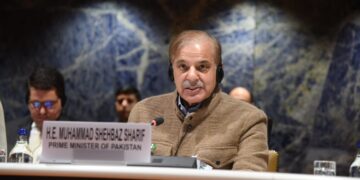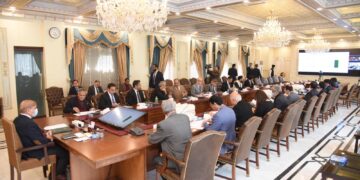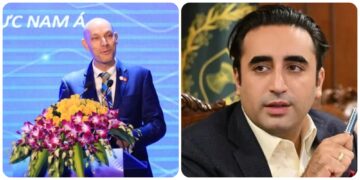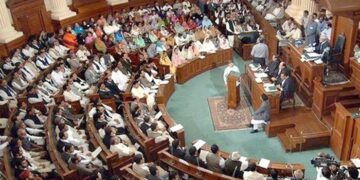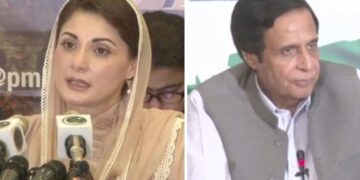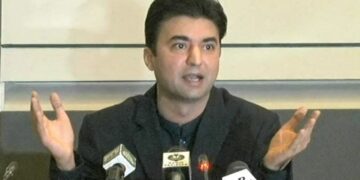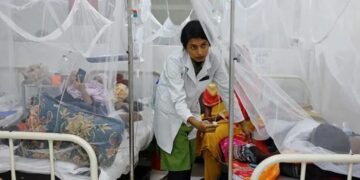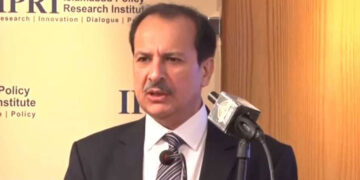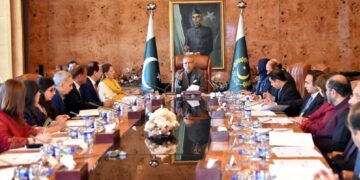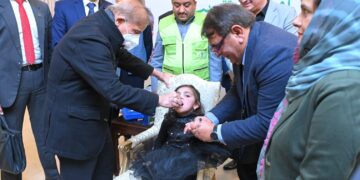In her first visit to Pakistan on Tuesday, German Foreign Minister Annalena Baerbock urged the international community to “send a loud and clear message” to the Afghan Taliban that they were “going in the wrong direction.”
The German diplomat warned of the humanitarian crisis emerging in Afghanistan under the Taliban authorities during a press briefing in Islamabad alongside her Pakistani colleague Bilawal Bhutto Zardari.
“When we look across the border, we see a horrible scenario, and the Taliban are bringing the country to its knees,” she said. “Parents are unsure how to feed their children, girls are denied access to education, women are marginalised in society, dissenting voices are silenced, and the economy grinds to a halt.”
“The world community must unite and tell the Taliban loudly and clearly that they are on the wrong track.” And as long as they continue on this course, there will be no room for normalisation or even acceptance of the Taliban as legitimate rulers,” Baerbock said.
However, she went on to say that Germany would not forget or abandon the Afghan people. “The Taliban destroyed the government, and since then, they have tightened their grip on Afghan society,” she added, adding that Germany would continue to provide humanitarian help and support to those in need, particularly women and girls.
The diplomat emphasised that Pakistan had been Germany’s “closest and most reliable partner” in this regard, revealing that as a result of the two countries’ close cooperation, 14,000 Afghans who were at risk in their home country were able to travel to Germany via Pakistan and begin a new life in safety and without fear.
Meanwhile, Foreign Minister Bilawal has urged the international community to respond to the “grave humanitarian crisis” in Afghanistan, which has put the lives of 40 million Afghans in jeopardy.
“Pakistan’s policy is unmistakable. He stated, “We favour a peaceful and prosperous Afghanistan that contributes to regional connectivity and stability.” “It is our goal that the Afghan authorities will respond to the international community’s expectations, including inclusivity, respect, and human rights for everyone, including women, as well as implement effective counter-terrorism measures.”
The world, for its part, should actively engage in preventing the humanitarian crisis and releasing Afghan assets, according to the foreign minister, as this was critical for stabilising and sustaining the economy.
He also stated that Pakistan was assisting Afghanistan in resolving its economic crisis from the outside. “This is Pakistan’s face… A contemporary Muslim country.”
The crisis in Ukraine
During a discussion of the Ukraine crisis, Bilawal stated that Pakistan “does not want to be pulled into battle, especially given that we have just experienced decade after decade of conflict in Afghanistan.”
“We have been in constant touch with the leadership of Ukraine and Russia, as well as the European Union and other nations, since the beginning of the Ukraine conflict, pushing them to maintain conversation and diplomacy in the quest of peace [in Ukraine],” he said.
“We emphasise the importance of an immediate cessation of hostilities in the region, as well as constructive interaction.” Pakistan expects to find a solution through conversation soon,” Bilawal expressed hope.
Germany’s Baerbock, on the other hand, stated that Russia’s conflict had established dangerous precedents for the globe and encouraged the international community to stand with Ukraine and protect its independence through words and actions.
She stated that Russia’s limitations on wheat exports and its seizure of Ukrainian inventories have caused global food prices to skyrocket, putting the lives of countries that rely on wheat imports in jeopardy.
Taking action on climate change
Both foreign ministers expressed severe alarm over the world’s worsening climate.
“We are all living in the same house when it comes to the climate catastrophe, and the roof is already on fire.” We are running out of time and must act soon,” said the German ambassador.
She recalled that Germany and Pakistan had formed a combined climate and energy agreement the previous year. “We want to build on this relationship, advance the energy transition, and take our bilateral climate relations to the next level.”
In addition, the leaders addressed ways to expand trade and investment, particularly in the sector of renewable energy. They expressed trust in the importance of shared values and standards for successful economic integration.
“In the face of these various challenges, we can only fight if we share ideas, speak openly and honestly, and work together closely.” “I am confident that our meeting today has created the foundation for our future cooperation,” FM Baerbock remarked.
